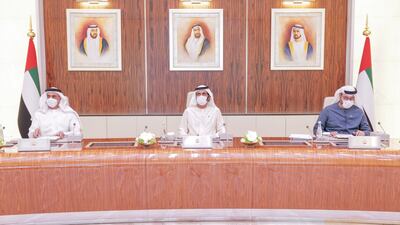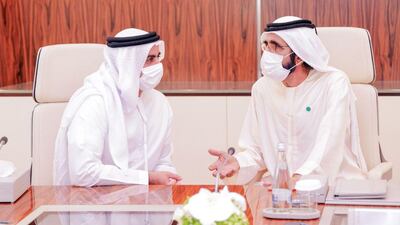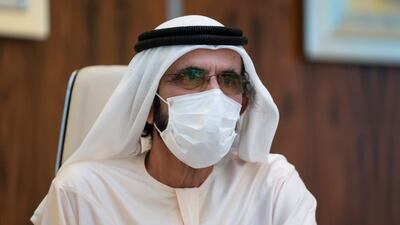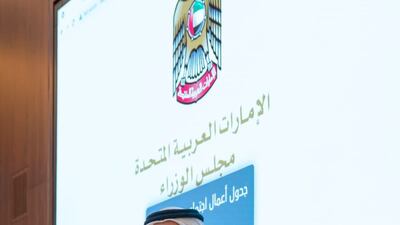The UAE is bolstering efforts to combat money laundering and terrorist financing through the creation of a dedicated office to prevent such financial crimes, Sheikh Mohammed bin Rashid announced on Monday.
The Prime Minister and Ruler of Dubai said the UAE Cabinet approved the establishment of an executive office within the Ministry of Foreign Affairs and International Co-operation to confront money laundering.
"The UAE's economy is a global economy and its legislation keeps pace with it," he said.
The Cabinet also approved a council to co-ordinate federal and local financial policies.
The UAE has strict laws to deal with money laundering and financial crimes and recently stepped up efforts to fight such crimes.
Last month, the Ministry of Economy set up an anti-money laundering department to oversee compliance with local laws. In addition, a dedicated court to tackle money laundering and tax evasion was established in Abu Dhabi.
During the last Cabinet meeting of the year on Monday in Abu Dhabi, the ministers also approved the establishment of a National Commission for Human Rights.
The independent authority will be responsible for monitoring human rights cases and enacting policies. It will work with local and international bodies to "preserve the level of civilisation we have reached in this country", Sheikh Mohammed said.
"Women, children, labourers, the elderly, people of determination and the vulnerable have rights that must be safeguarded. The authority will advance our country’s efforts in protecting human rights," he said.
A speedy economic recovery post Covid-19 is a key goal for the UAE with plans for the next 50 years centred on further growth and development.
On Monday, the Cabinet approved the restructure of the Emirates Competitiveness Council, headed by Mohammed Al Gergawi, Minister of Cabinet Affairs, as part of those plans.
Sheikh Mohammed said the restructure was approved "so that the council kicks off the new year with a new vision to consolidate the UAE’s competitiveness".
He said the UAE ranked first in the world in 121 key indicators "and the goal is [to set] a new phase of the UAE’s global competence with the start of the new [next] 50 years".
A National Entrepreneurship Council was also formed to support this economic growth. Led by Minister of State for Entrepreneurship and SMEs Ahmad Al Falasi, the council will support Emirati projects.
"2020 has taught us that our country is full of opportunities and that our youth deserve the best. We started growing their opportunities in domestic tourism, and we will take these efforts to the rest of the sectors," he said.
Five years since the UAE signed the Paris Agreement – a legally binding aim to keep global warming under 2°C and limiting temperature rises to 1.5°C – the Cabinet approved a new set of environmental commitments related to clean energy and carbon emissions.
"Climate change is the greatest global challenge in the future, which requires serious, real and continuous efforts," Sheikh Mohammed said.
The council also approved the formation of a judicial co-ordination council led by Sultan Al Badi, Minister of Justice.
Finally, an executive regulation to protect and safeguard local antiquities was approved. The regulation calls for training national teams in excavation and archaeology.
"Our antiquities represent our historical depth," Sheikh Mohammed said. "Our Founder said 'Anyone without a past, shall not have a present or future'."










